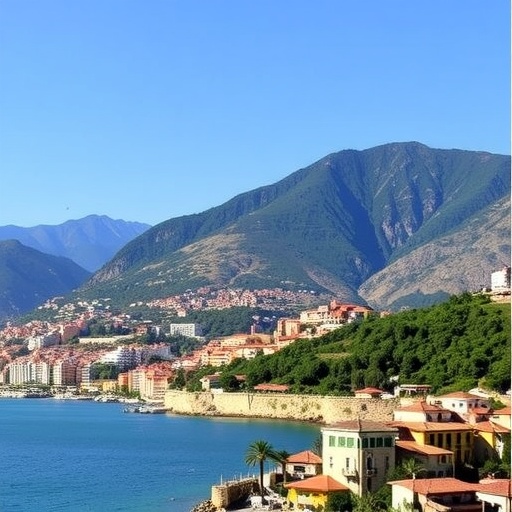In recent years, the intersection of artificial intelligence and tourism has garnered considerable attention, bringing innovative solutions to a sector traditionally reliant on personal recommendations. In a pioneering study, Feng introduces a sophisticated tourism recommendation model that leverages a combination of intelligent genetic algorithms (IGA) and multi-source heterogeneous data. This approach stands to revolutionize the way travelers discover destinations, accommodations, and activities, propelling personalized travel planning into a new era.
Central to Feng’s research is the idea that with the abundance of data available today, traditional one-size-fits-all recommendations fall short of meeting the diverse preferences of travelers. Instead, by integrating various data sources—including social media, user reviews, and booking histories—this model crafts recommendations that truly resonate with individual user preferences. Utilizing IGA allows for a level of adaptability and optimization that static models cannot achieve. As these genetic algorithms evolve, they systematically refine recommendations, mirroring the complexity of human decision-making processes.
The technical architecture of Feng’s model hinges on its ability to process large data sets effectively. By harnessing heterogeneous data, the model captures nuances that might be overlooked using singular data streams. For instance, while user reviews provide qualitative insights, social media interactions offer real-time popularity indices and emerging trends in destinations. This multi-faceted data collection empowers the system to assess fluctuations in traveler preferences, adjusting its outputs accordingly and ensuring that users always receive current and relevant options.
Moreover, the implementation of intelligent genetic algorithms adds a dynamic component to the model. Unlike traditional recommendation systems that may rely on fixed parameters, IGAs iteratively enhance their performance by simulating natural selection processes. Recommendations are scored based on user feedback, analyzed, and subsequently improved in subsequent iterations—leading to increasingly refined suggestions. This iterative learning process sets the stage for a more responsive and adaptive tourism experience.
Feng’s study also delves into the significance of personalization in modern travel planning. By understanding that each traveler possesses distinct needs and desires, the model enhances user engagement and satisfaction. As users interact with the system, their preferences become the guiding force behind future recommendations. This level of personalization not only streamlines the planning process but also enriches the overall travel experience, making it less daunting and more enjoyable for users.
Another critical aspect of the research involves the model’s scalability. As the demographic of travelers continues to diversify, the ability to tailor recommendations to various cultural backgrounds and travel preferences is essential. Feng emphasizes that the model’s architecture allows for the integration of cultural data, facilitating suggestions that are not merely personalized, but also culturally sensitive and appropriate. This feature underscores a vital consideration for global tourism operators aiming to cater to diverse audiences.
The implications of Feng’s findings reverberate beyond individual user satisfaction. Travel agencies and tourism boards, in particular, can leverage such advanced recommendation systems to tailor their marketing strategies. By understanding trends in traveler behavior and preferences, these organizations can create targeted campaigns that resonate with specific demographics, ultimately driving engagement and increasing conversions.
Moreover, the potential for monetization through partnerships with local businesses is substantial. The tourism industry can optimize collaborations by utilizing data-driven insights from IGA-driven recommendations, presenting local attractions, eateries, and accommodations that align perfectly with a traveler’s interests. This symbiotic relationship could enhance local economies while providing travelers with enriched experiences, establishing a win-win scenario.
However, while the promise of this model is significant, challenges remain in terms of data privacy and ethical considerations. The amalgamation of vast and varied data sources can lead to concerns regarding user consent and data security. As the tourism recommendation model continues to evolve, it will be crucial for developers to address these ethical dilemmas, ensuring that user data is handled responsibly and transparently.
In conclusion, Feng’s groundbreaking tourism recommendation model exemplifies a compelling fusion of technology and user-centric design. By incorporating intelligent genetic algorithms and diverse data sources, the model not only promises to refine how travelers discover experiences but also advocates for a more personalized and culturally aware approach to tourism. As the industry continues to embrace artificial intelligence, it is essential to monitor the balance between technological advancement and ethical responsibility, paving the way for a future where technology enhances the human experience.
As this study shows, the future of tourism lies in harnessing the potential of artificial intelligence to create tailored, responsive experiences that resonate with the diverse landscape of travelers. With models like Feng’s paving the way, a new age of personalized travel recommendations is on the horizon, making exploration more accessible, enjoyable, and meaningful.
Subject of Research: Tourism recommendation model integrating IGA and multi-source heterogeneous data.
Article Title: Feng, J. Tourism recommendation model integrating IGA and multi-source heterogeneous data.
Article References:
Feng, J. Tourism recommendation model integrating IGA and multi-source heterogeneous data.
Discov Artif Intell 5, 330 (2025). https://doi.org/10.1007/s44163-025-00533-0
Image Credits: AI Generated
DOI: https://doi.org/10.1007/s44163-025-00533-0
Keywords: Tourism, Recommendation Systems, Artificial Intelligence, Intelligent Genetic Algorithms, Data Integration, Personalization, User Experience.




